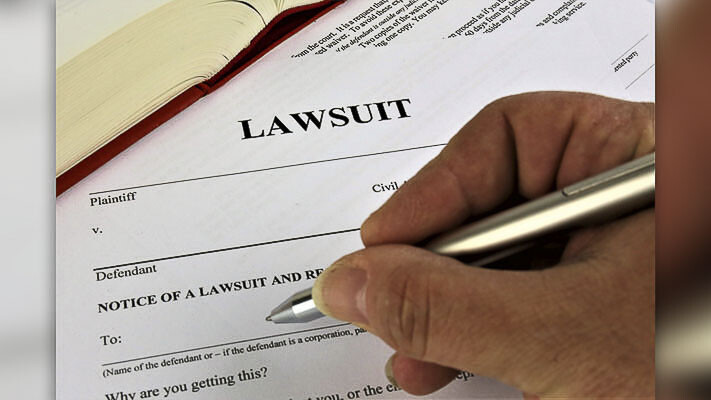
Jason Mercier of the Washington Policy Center points out that Washington State government officials, however, stand alone claiming a capital gains tax is an ‘excise tax’
Jason Mercier
Washington Policy Center
Last week the state Supreme Court heard oral arguments concerning the capital gains income tax. I attended the hearing in person. Here is a short video of my hot takes shortly after the court arguments as well as video comments from former Attorney General Rob McKenna (one of the attorneys challenging the tax). It is unclear when the court will issue its opinion. The capital gains income tax is first owed on April 18, 2023. There are three possible rulings the court could issue. We’ll explore each and what the impact could be.

One possible outcome is for the state Supreme Court to catch the Hail Mary pass thrown by income tax advocates and by judicial fiat now allow a graduated income tax without a constitutional amendment. This is the preferred course of the Washington Education Association and other interveners who argued to the court that income isn’t property.
This strategy is being pursued by income tax advocates because Washington voters have already rejected six constitutional amendments to allow a graduated income tax (10 straight income tax proposals rejected including initiatives).
As explained by Sen. Jamie Pedersen in this 2018 email obtained by a public records request (page 1 of pdf):
“But the more important benefit of passing a capital gains tax is on the legal side, from my perspective. The other side will challenge it as an unconstitutional property tax. This will give the Supreme Court the opportunity to revisit its bad decisions from 1934 and 1951 that income is property and will make it possible, if we succeed, to enact a progressive income tax with a simple majority vote.”
This effort to have the court change prior rulings and now say Washingtonians don’t own their income has consistently been rejected by the courts. In fact, on September 13, 1960, the state Supreme Court issued a unanimous one-page ruling with this sage advice: Don’t ask the court to reverse its numerous rulings prohibiting a graduated income tax; instead amend the constitution:
“The argument is again pressed upon us that these cases were wrongly decided. The court is unwilling, however, to recede from the position announced in its repeated decisions. Among other things, the attorney general urges that the result should now be different because the state is confronted with a financial crisis. If so, the constitution may be amended by vote of the people. Such a constitutional amendment was rejected by popular vote in 1934.”
Another possible outcome is for the justices to decide that Washington alone has discovered how to tax income as an excise tax and that this a valid excise tax. Should that occur, however, there is the potential for a federal lawsuit for violation of the U.S. Commerce Clause. While states can tax income across state lines, they are prohibited from taxing activity that occurs in other states. If the capital gains tax is found to be an “excise tax,” Washington would be attempting to tax activity that occurs in other states.
It is important to remember that no other state has a standalone tax on capital gains. 41 states do have personal income taxes, and as income, capital gains are included in those tax bases. This is why those taxes on capital gains income don’t run afoul of the U.S. Commerce Clause. Attempting instead to tax activity that occurs in other states (an “excise tax”) raises federal constitutional concerns.
There is also the possibility that if the capital gains income tax is deemed an “excise tax” by our court, taxpayers will not be able to deduct it from their federal tax burden.
According to a Congressional Liaison for the IRS, if the capital gains tax is upheld as an “excise tax,” taxpayers may be prevented from deducting it against their federal income tax returns:
“I conferred with our internal sources and looked into RCW 82.87.040 which reads the Capital Gains Tax is labeled as an ‘Excise Tax’ and not an ‘Income tax’. Based on PUB 17, stipulated state excise taxes is not deductible. So my preliminary answer is no, that IRS cannot interpret state excise tax into income tax and allow its deduction on federal returns.”
The IRS is crystal clear, however, on what type of tax a capital gains tax really is – an income tax.
The final possible outcome is that the court could agree with the Inslee-appointed Superior Court judge that the capital gains income tax “is declared unconstitutional and invalid and, therefore, is void and inoperable as a matter of law.”
Some have raised concerns that important programs would be at risk if the state Supreme Court overturns that capital gains income tax. Lawmakers have already made it clear, however, that the targeted spending will occur even if the tax is declared unconstitutional.
As reported by the Spokesman Review:
“The tax is currently held up in the courts, with opponents saying it’s an unconstitutional income tax. The state Supreme Court will hear oral arguments in the case next week. But Senn and Wilson said Wednesday they were not concerned about the capital gains tax failing to provide funding for these programs. If it is deemed unconstitutional, Wilson said the programs in the Fair Start for Kids Act will still be funded through the state general fund.”
The Seattle Times also reported:
“Wilson said in an email that the Fair Start funding ‘is not contingent on the capital gains tax revenue being collected, and it will be funded regardless of what the courts decide.’”
Those that monitor the state’s creditworthiness are also not concerned about the capital gains income tax being declared unconstitutional. This is from Standard and Poor’s January 10, 2023, credit rating for the state:
“Beginning with the February 2022 forecast, the imposition of certain individual capital gains taxes, to be deposited for the benefit of the education legacy trust account was included, which the state considers to be near general fund revenue. Ongoing litigation regarding the constitutionality of the tax remains, though the Department of Revenue has been allowed to proceed with the administrative steps and collection of taxes, beginning with tax year 2022, due in 2023. Should the authorizing statute prove unconstitutional, we believe the effects to be marginal, given that it represents less than 1% of projected revenues in the coming fiscal years.”
No matter what the justices decide the fact will remain that literally every tax professional in the world, from the IRS, to every other state, to other countries will tell you the same thing – capital gains are income and taxes on them are income taxes.
For example, here is what the IRS says:
“This is in response to your inquiry regarding the tax treatment of capital gains. You ask whether tax on capital gains is considered an excise tax or an income tax? It is an income tax. More specifically, capital gains are treated as income under the tax code and taxed as such.”
Forty-nine states agree with the IRS. The California Franchise Tax Board says:
“California taxes capital gains as an income tax and they are taxed at the same rate as ordinary income.”
Other countries also agree with the IRS. The Australian Taxation Office says:
“You report capital gains and capital losses in your income tax return and pay tax on your capital gains. Although it is referred to as ‘capital gains tax,’ it is part of your income tax. It is not a separate tax.”
Washington State government officials, however, stand alone claiming a capital gains tax is an “excise tax.”
Jason Mercier is the director of the Center for Government Reform at the Washington Policy Center.
Also read:
- POLL: Why did voters reject all three tax proposals in the April 22 special election?Clark County voters rejected all three tax measures on the April 22 special election ballot, prompting questions about trust, affordability, and communication.
- Opinion: The war on parental rightsNancy Churchill argues that Olympia lawmakers are undermining voter-approved parental rights by rewriting key legislation and silencing dissent.
- Opinion: An Earth Day Lesson – Last year’s biggest environmental victories came from free marketsTodd Myers argues that Earth Day should highlight free-market solutions and grassroots innovation as more effective tools for environmental stewardship than top-down mandates.
- Opinion: Time to limit emergency clauses and give voters a choiceTodd Myers urges the governor to remove emergency clauses from bills that appear intended to block voter input rather than address real emergencies.
- Letter: C-TRAN Board improper meeting conductCamas resident Rick Vermeers criticizes the C-TRAN Board for misusing parliamentary procedure during a controversial vote on light rail.










